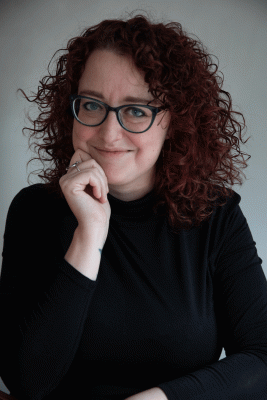Last Word: The stories we tell
Humans are obsessed with telling stories about ourselves. Religion is one such significant form of meaning-making. What are oral traditions, religious texts, ancient mythologies, and historical records if not varied contextual forms of narrative, of self-reportage? This is who we are. This is our purpose. This is where we have been. This is where we are going.

So what do you do when the story you have been told about yourself in order to make meaning of not only your life but the world and everything in it … suddenly shatters?
I was raised in the heartland as the religious right reached its political height in the early 2000s. I was a rule-following, people-pleasing child, which is to say that, growing up in conservative, evangelical churches in the small town Midwest, I did religion very well. I memorized entire chapters of the Gospels, knew every hymn (and Christian rock song) by heart. Jesus made sense to me, and he provided an order in my decidedly disordered home. Simultaneously, I sparked to feminism at an early age, reading everything about the history of women’s rights that I could get my hands on.
In college this cognitive dissonance manifested in the simple fact that I led a decidedly evangelical women’s Bible study while also being a women’s studies major. I dated, and later married, the guy who led the men’s Bible study—a pastor’s son from what was arguably a city. It would take our marriage, moving to Boston, and my starting an English Ph.D. program—a career path first recommended to me by my Cornell professors—for me to realize that I was gay and, moreover, that my values and lived experience had become entirely contradictory to the evangelical church.
Leaving my marriage and most especially my faith was world shattering, forcing a total reconstruction of identity that I wrote about in my debut memoir, “Heretic,” which came out last fall with HarperCollins.
But whether it’s my upbringing in small town Iowa, in evangelical Christianity, or simply the fact that I’ve been a lifelong student of literature, there are parts of my experience within the faith I remain grateful for: namely, an appreciation for the extraordinary transformation and catharsis that story can provide on both individual and communal levels. My English major gave me new ways to frame and understand the stories that had been handed down to me in church, a way to analyze how seemingly “immutable” biblical stories were, in fact, like so many other universal myths and stories that were passed down over millennia of generations, retold by everyone from Blake and Milton to contemporary romance authors.
This is who we are. This is our purpose. This is where we have been. This is where we are going. This, it turns out, is still true, even when the story is taken outside of a literalist, even fascist approach.
The themes that inform every generation can’t be banned, it turns out. You can’t burn curiosity out of the very essence of what makes us human. We are drawn to stories that will tell us the truth of who we are. We always have been, and we always will be.
Jeanna Kadlec ’10 lives in Brooklyn, New York. Her memoir, “Heretic,” was published by HarperCollins and named one of the “Best New Books” of fall 2022 by People magazine.



